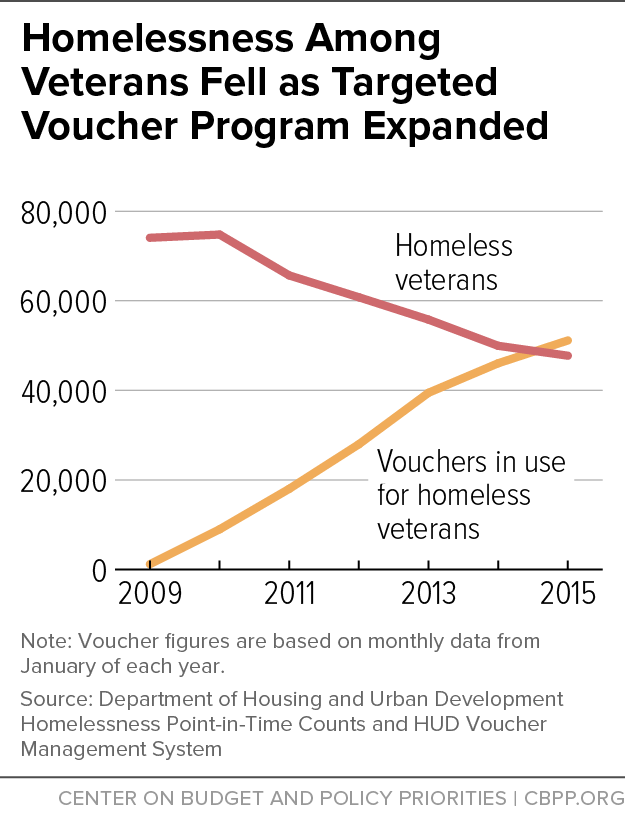BEYOND THE NUMBERS
Homelessness in Los Angeles has dropped by 30 percent among veterans even while rising for residents overall, the New York Times reports — progress that local officials attribute to housing vouchers for veterans. “Where we invest, we see results,” says the Los Angeles Homeless Services Authority’s executive director. That’s an important message for federal policymakers, who can renew the nation’s commitment to reducing homelessness and helping more low-income families afford decent rental housing as they prepare the Department of Housing and Urban Development’s (HUD) 2017 budget.
Nationally, the number of homeless veterans has dropped by 35 percent since 2009, according to the single-night counts that local communities perform every January. While the recovering economy likely played a role, much of the credit goes to the HUD-Veterans Affairs Supportive Housing (HUD-VASH) voucher program, which provides rental assistance to homeless veterans along with case management and clinical services through VA medical centers.
Policymakers have funded steady increases in the number of HUD-VASH vouchers since 2008, accounting for nearly all of the new housing vouchers funded during this period to help households without rental assistance. As the graph shows, HUD-VASH grew in tandem with the rapid decline in veteran homelessness. Research shows that vouchers are highly effective in reducing homelessness, so it’s no surprise that more vouchers for veterans would mean fewer veterans without homes.
Vouchers also sharply reduce homelessness and related hardships among families with children, providing a platform for low-income children to improve their lives over the long term.
Building on the success in reducing veterans’ homelessness, President Obama proposed in his 2016 and 2017 budgets to fund more vouchers for homeless families with children. The 2017 budget, for example, includes $88 million for 10,000 new vouchers for homeless families, a first installment in an $11 billion, ten-year plan to eliminate family homelessness.
Congress has taken modest steps in this direction but should do more. The 2017 HUD budget that the Senate Appropriations Committee recently approved includes $20 million for 2,500 new vouchers for youth aging out of foster care as well as for families with children under the care of child welfare agencies that need affordable housing. It also includes $50 million for roughly 8,300 new vouchers for homeless veterans. The House Appropriations Committee should accept the Senate provisions when it acts later this year. And both the House and Senate should adopt the President’s proposal to reduce homelessness among families with children.

